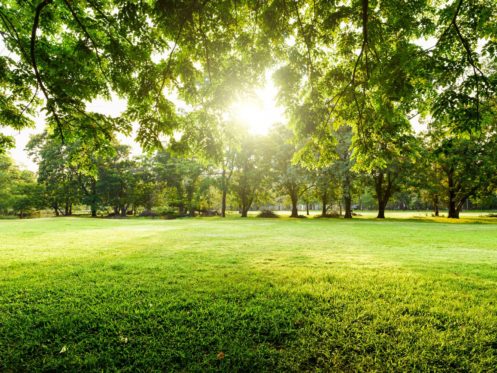Home air conditioning has become a staple of regular life in the 21st century. However, like many of our household systems and practices, it’s always necessary to take a step back and see how they’re impacting the environment around us. One common theme that you may discover about air conditioning is that it’s been claimed to wreak havoc on the environment by creating harmful pollution.
Fossil Fuel Usage
The typical home air conditioning system is powered by electricity. Most houses get their electricity from power plants that utilize fossil fuels to create that electricity. As you likely know, fossil fuels like gas, coal, and oil are a leading source of the world’s global warming pollution. This is because when fossil fuels are burned, they emit carbon dioxide into the atmosphere. Carbon dioxide is known to be one of the major contributors to ozone depletion. As you run your AC unit for hours throughout the day, fossil fuels continually burn to supply you with adequate electricity.
Harmful Gas Emissions
Another way that home air conditioning can contribute to pollution in our environment is through the release of refrigerant emissions into the air. All cooling systems are constructed with the basic substance of refrigerant that’s responsible for transporting heat from the inside of your home to the outside of your house. While refrigerant is intended to be a closed-loop system, it can potentially leak out of your air conditioning system as it ages.
In older air conditioning units, CFC refrigerant was utilized. This type of refrigerant has now been shown to be extremely damaging to the environment by increasing the number of holes in the Earth’s ozone layer. For this reason, all HVAC manufacturers have been instructed to eliminate the use of CFC refrigerants in systems. However, many homeowners still rely on older air conditioning systems that contain CFC refrigerant.
As manufacturers phased out CFC refrigerant, they replaced it with HFC refrigerant. Although this refrigerant didn’t directly damage the ozone layer, it does negatively affect the environment. When HFC refrigerant leaks out of your AC unit, it actively traps heat in the Earth’s lower atmosphere. This causes the Earth to warm up and the climate and weather to change, all of which will negatively impact our environment and the ozone layer.
Indoor Air Pollutants
As your air conditioning system circulates air throughout your home, it will pick up airborne particles. Some of the most common include dust, bacteria, and pet dander. The filter on your air conditioning system is intended to help trap these unwanted airborne pollutants. However, this filter needs to be changed on a regular basis or else it can’t do its job appropriately.
Additionally, the quality of the filter that you purchase is going to play a big role in the amount of filtering that your air filter will be able to do, depending on the exact size of the pollutant. Some air filters may only be rated to remove larger particles like dust and not be able to trap unwanted smaller particles like bacteria. Having an inefficient air filter in your home air conditioning system can result in unwanted pollutants entering the air inside of your house.
Ways to Reduce Pollution From Your AC System
After learning about how home air conditioning can impact the environment, you may be looking for ways to help reduce your negative impact. One of the best things that you can do is utilize an alternative power source for your AC unit to help prevent the burning of fossil fuels for producing electricity. Renewable energy sources include solar, wind, and hydroelectric power. For the average homeowner, solar panels can be a great way to help provide the energy you need to run your air conditioning system without having a negative impact on the planet and its ozone layer.
Another great way to reduce the negative impact of your air conditioning system is to run it less. By investing in a smart thermostat that will allow you to program energy-efficient settings, you’ll find that you need to run your air conditioning system less often. Additionally, investing in adequate insulation for your house can also reduce the need to run your AC unit on a consistent basis.
Professional AC Services
Ultimate Homes Cooling and Electrical offers professional AC services for the Cape Coral, FL community. We can also assist with all of your heating, indoor air quality, and pool heater and pump needs. Simply contact us today to get the professional assistance that you need!


